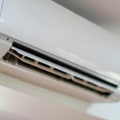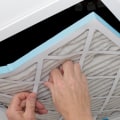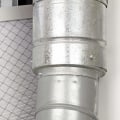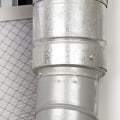Overall, the best Merv rating for a home is between 8 and 10. These filters will capture a large portion of airborne particulate matter and improve indoor air quality without significantly increasing energy costs. Generally, a Merv rating between 6 and 13 meets the needs of most residences. This range offers a good balance between air filtration, air flow, and affordability. If you select an air filter with a Merv 13 rating, it can last up to six months before needing to be replaced.HVAC system grade filters with MERV ratings from 1 to 16 are suitable for residential, commercial, and general hospital HVAC systems.
Our recommended MERV rating for oven filters ranges from 6 to 8 to achieve a great balance between maximum oven efficiency and home comfort. Generally, filters with higher Merv ratings are more effective and improve air quality, but they are also more expensive. Additionally, higher ratings don't always mean better for homeowners.MERV ratings above 16 are commonly used in specialized commercial environments where air filtration is critical, such as hospitals. You can also find the Microparticle Performance Rating (MPR) system, which ranges from 300 to 2200 and measures the effectiveness of a filter at trapping only the smallest particles on the MERV scale (0.3-1 micron in size).
A high MERV rating indicates that the filter does a good job of removing particulates from the air.Choosing the right MERV rating for your oven filter has a big impact on indoor air quality, the HVAC system, and most importantly, your family's well-being. MERV ratings indicate how effective an air filter is at reducing particulate matter and pollutants in the air. As it is a MERV 8 filter, it is not designed to trap the smallest particles that fall into the E1 category, such as pet dander. In simple terms, it sets the minimum amount of particulate matter that a filter must capture to achieve a specific MERV rating.The best MERV rating for residential use is one that properly cleans the air in your home without diminishing airflow or straining your HVAC equipment.
For example, if an air filter can capture at least 20% of E1, 65% of E2, and 85% of E3 particulates, it will earn a Merv 11 rating. When buying oven air filters, don't confuse MERV with other sorting systems that may appear on packaging (especially from large home improvement stores). The following table shows the different MERV classifications and their typical uses, as well as the typical material and shape with which they are made.This means that the HVAC system must work harder to move air when using a filter with a high MERV rating. With the Filter King filter selection tool, you can mark exactly the size, thickness and MERV rating you are looking for.






